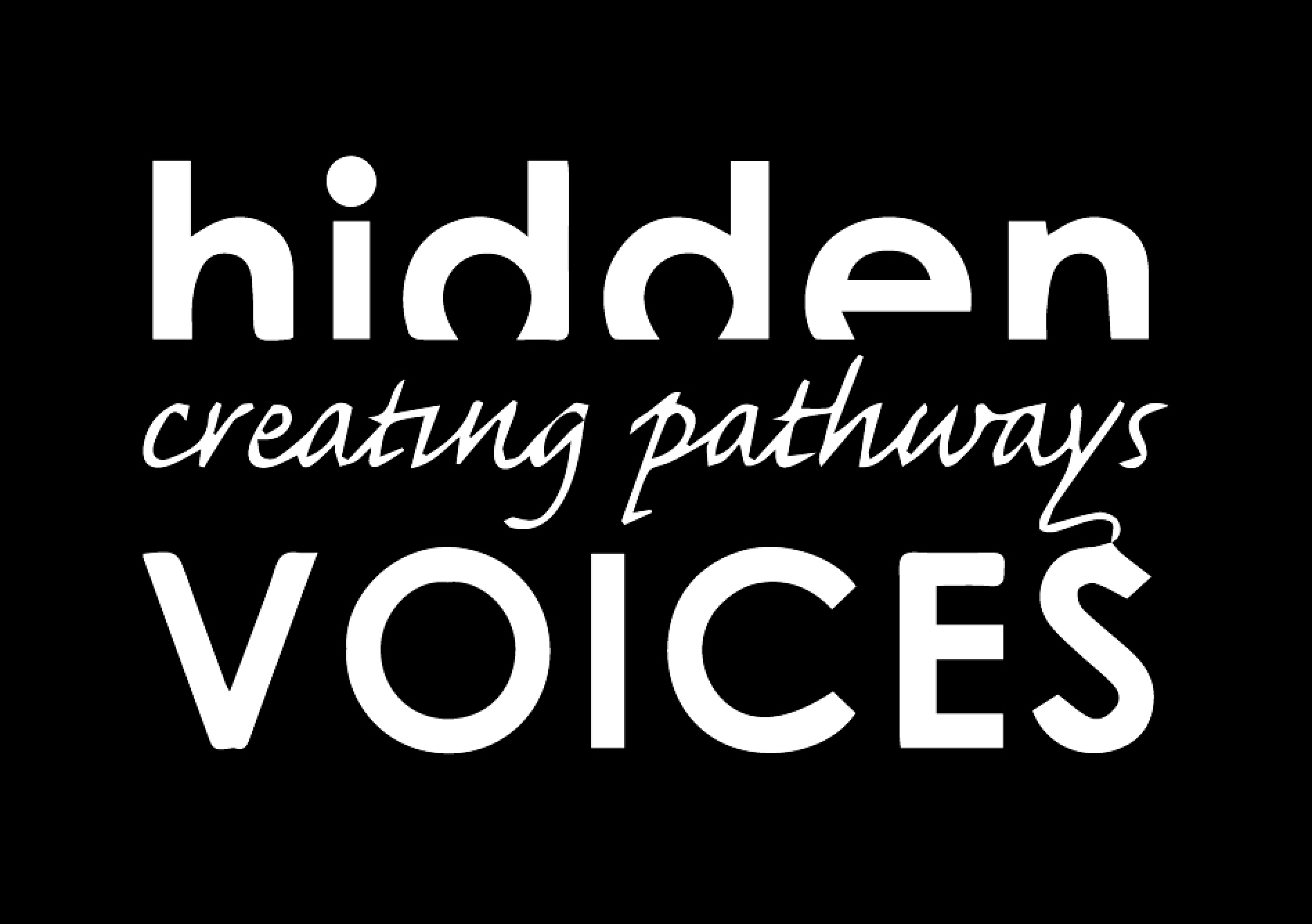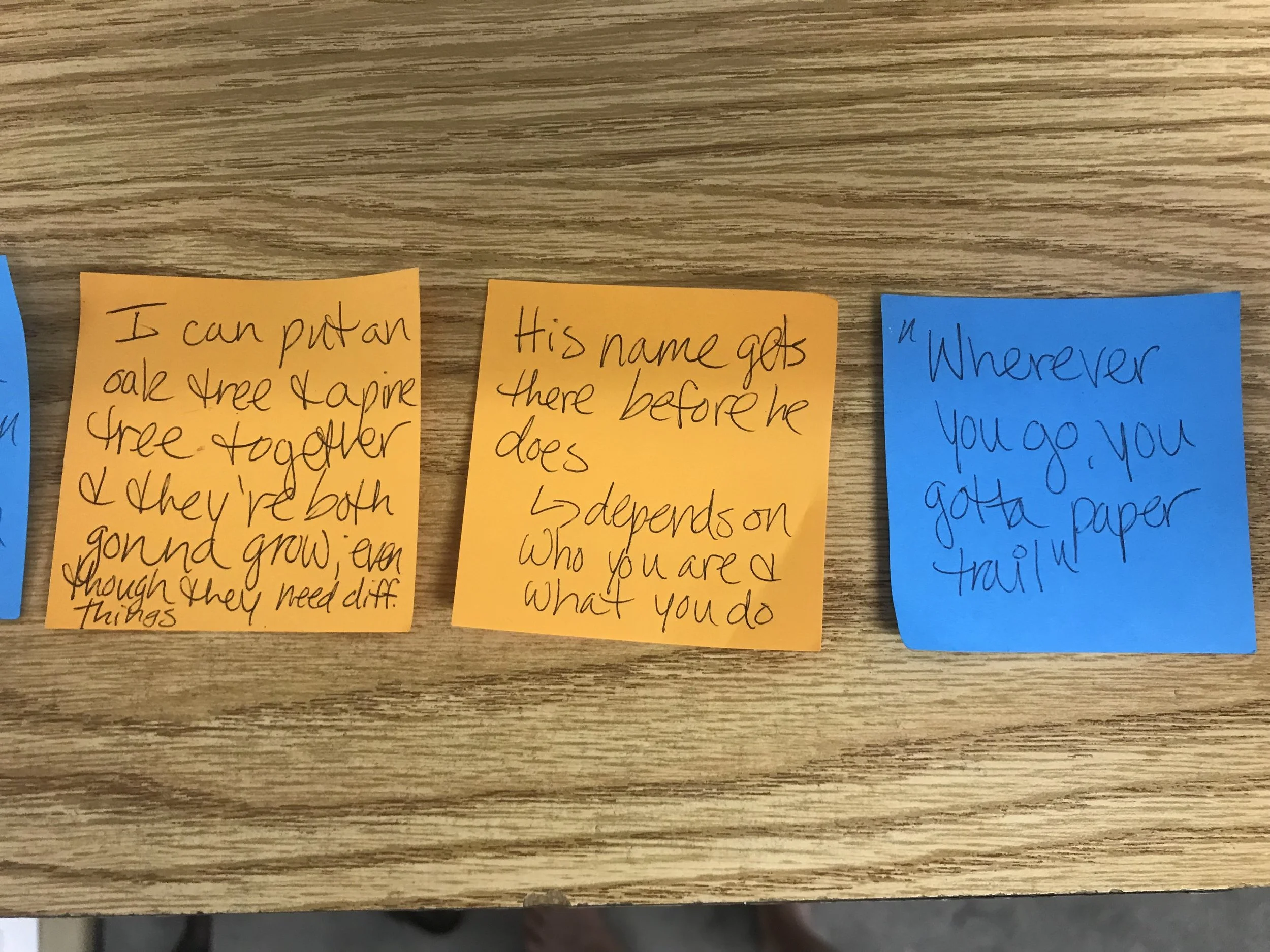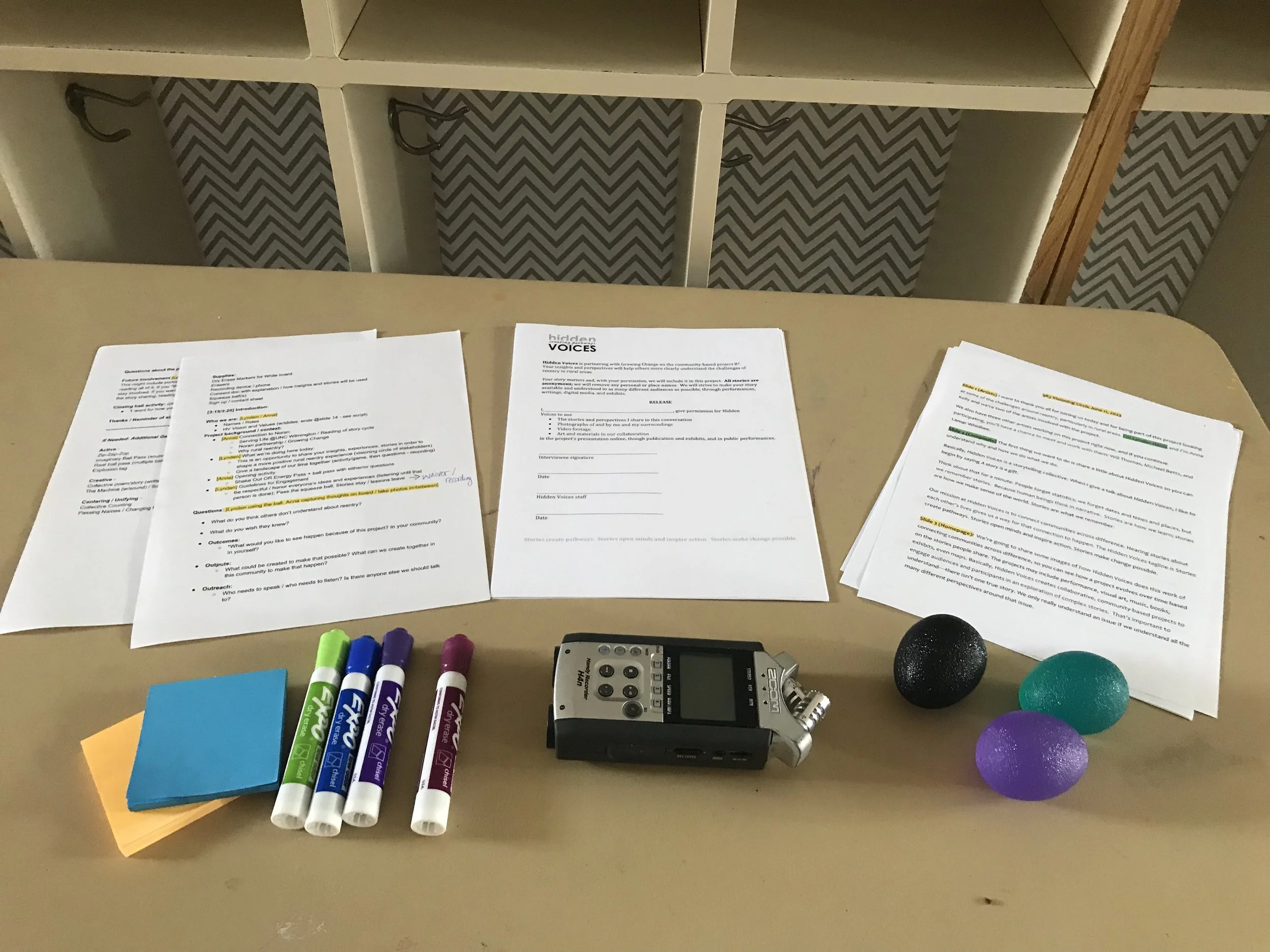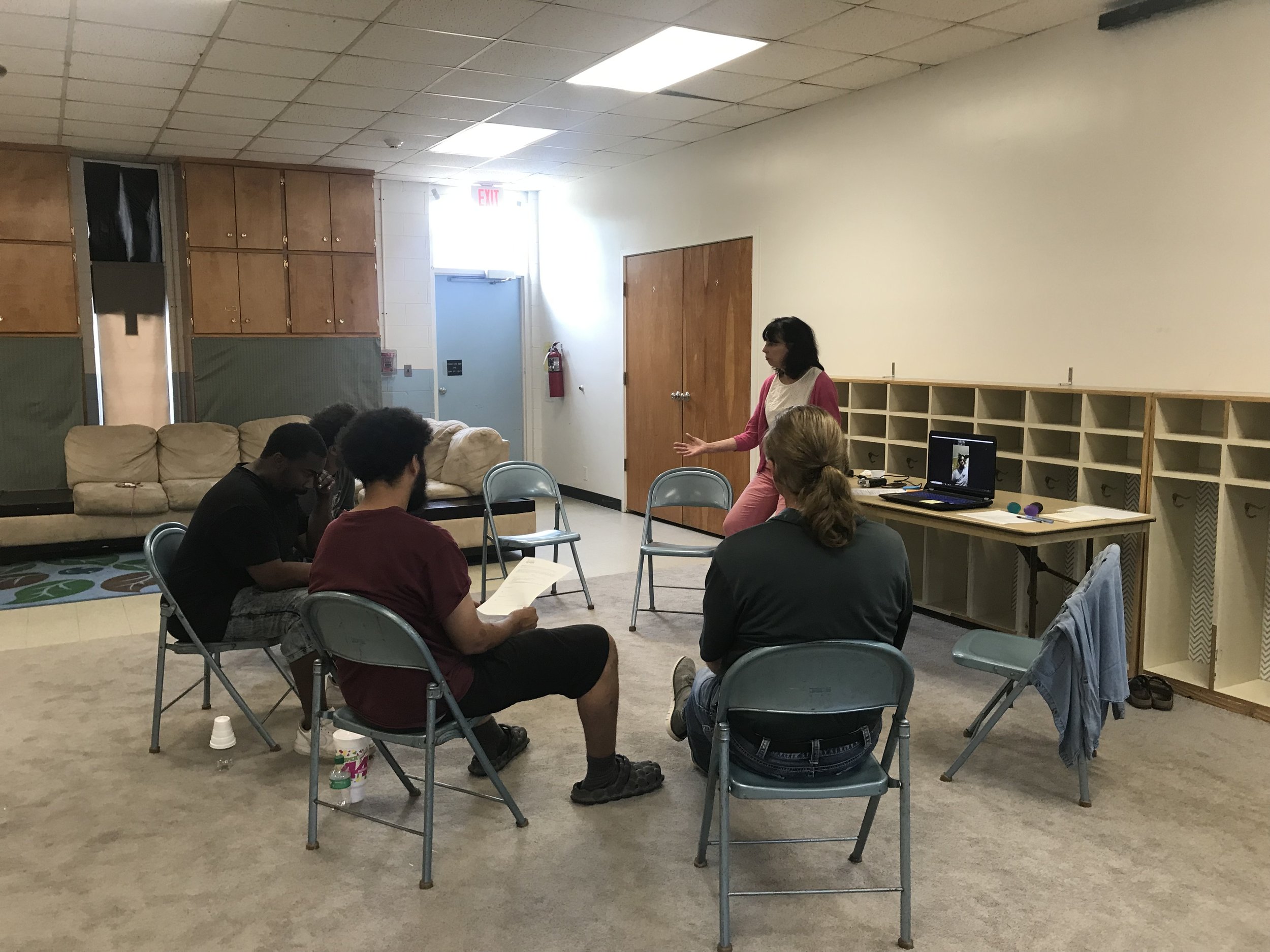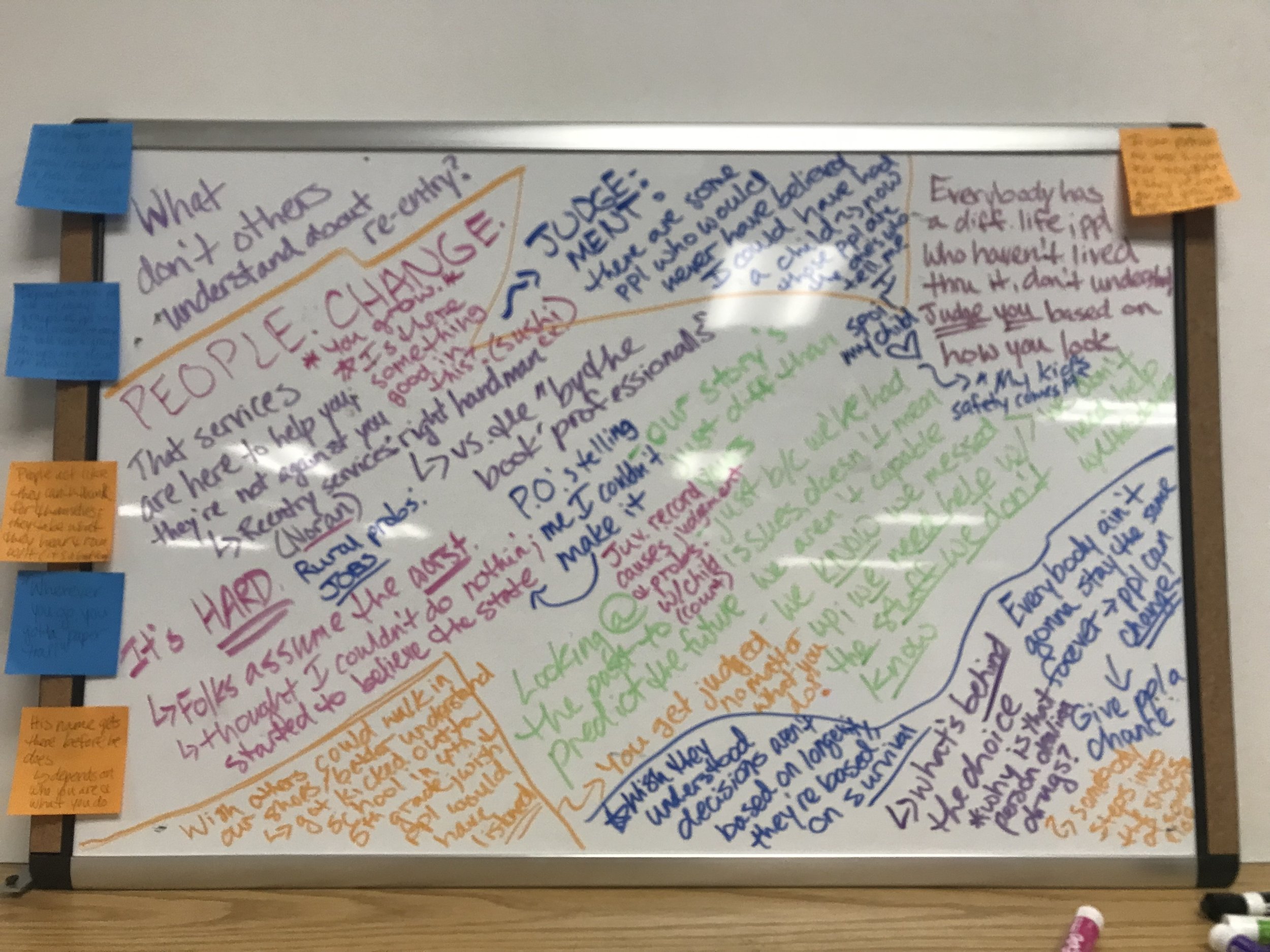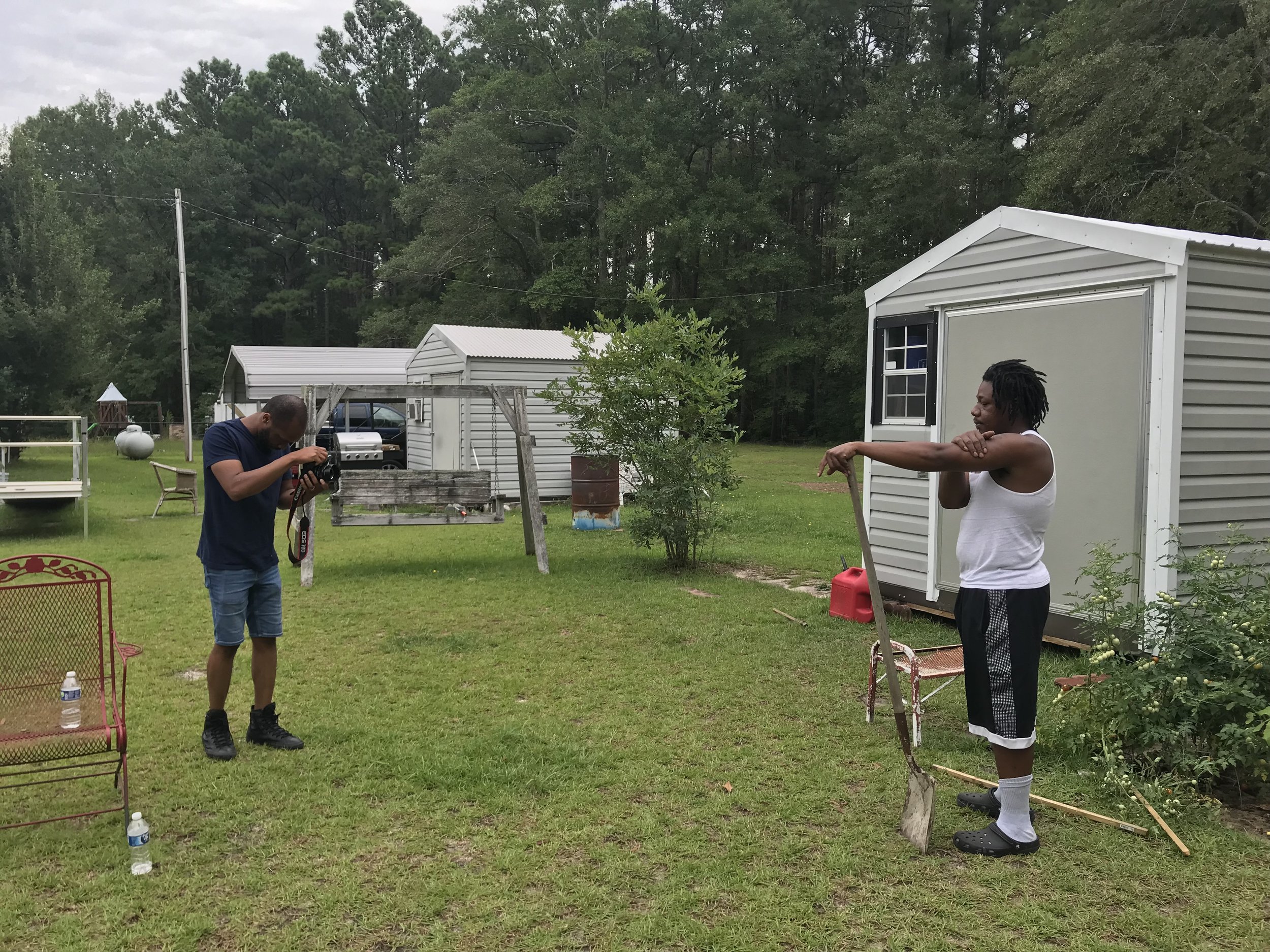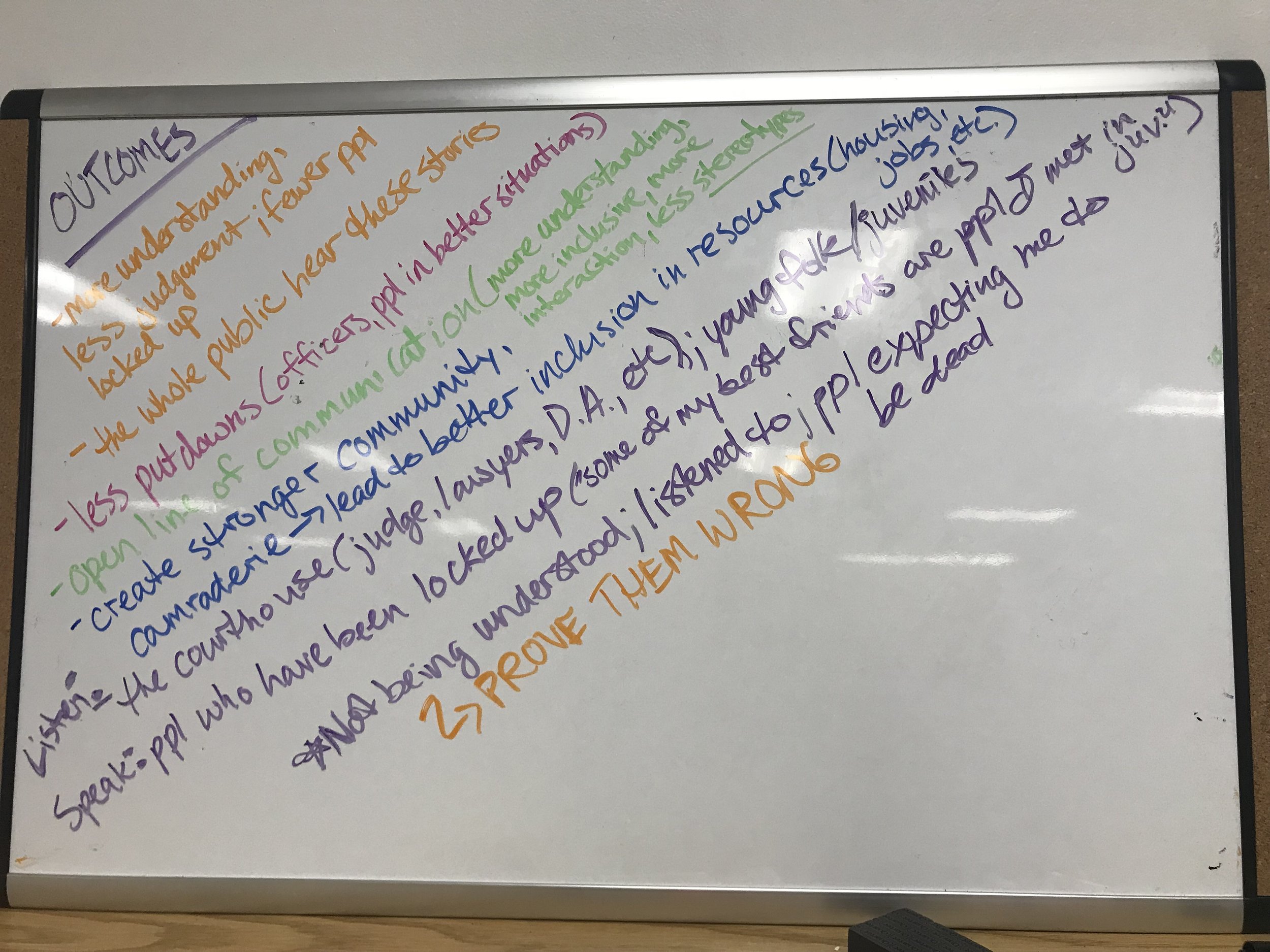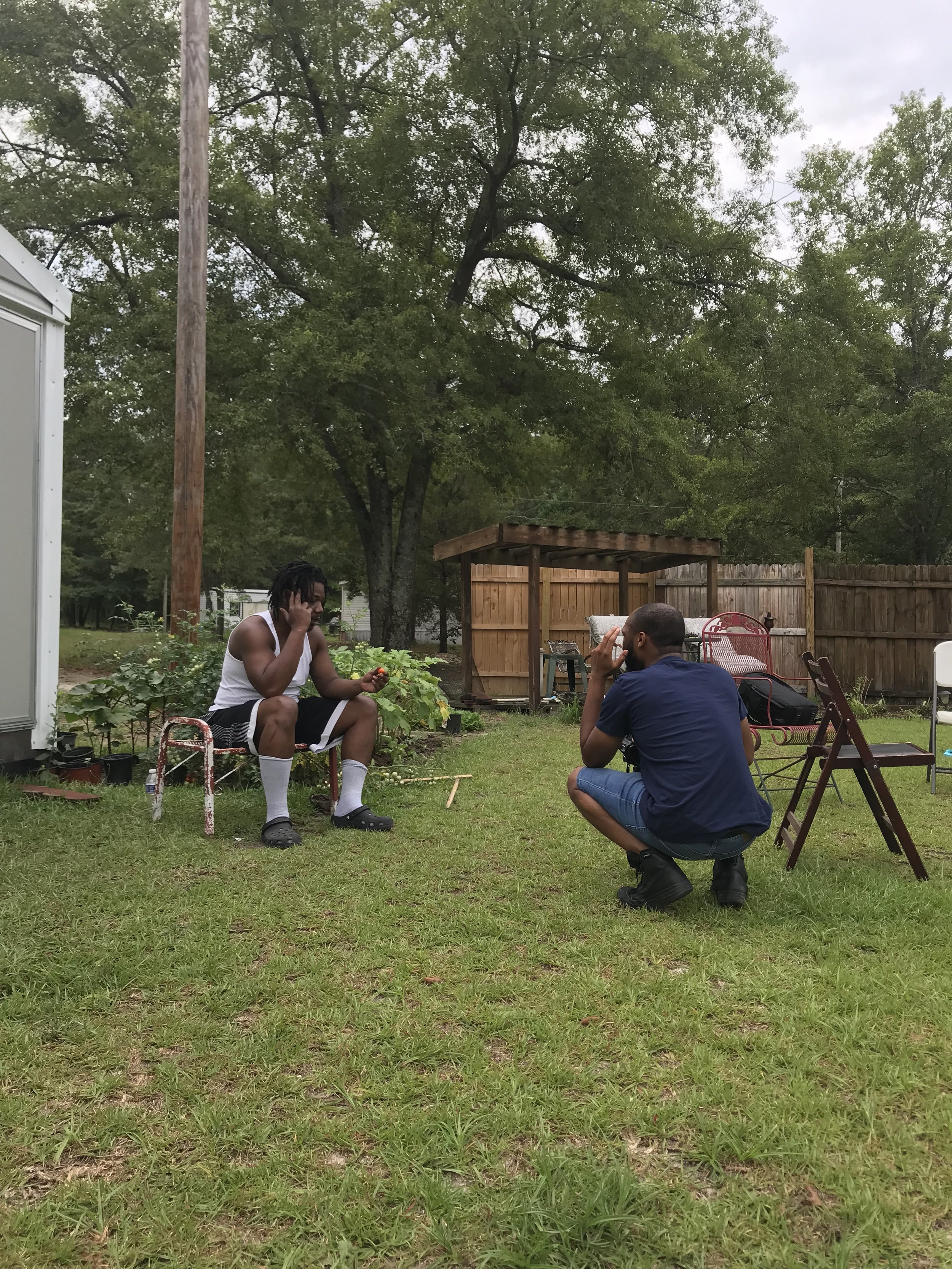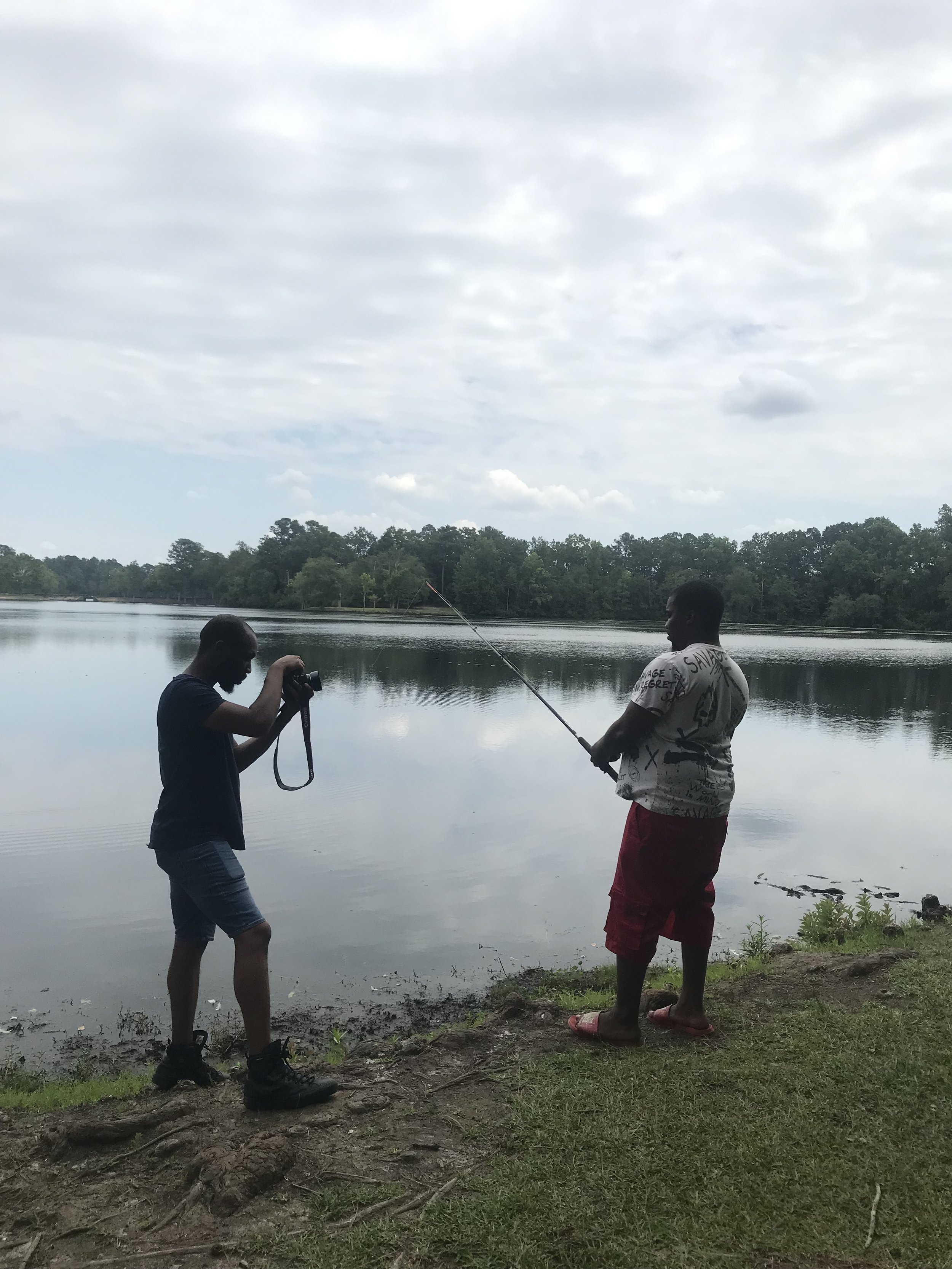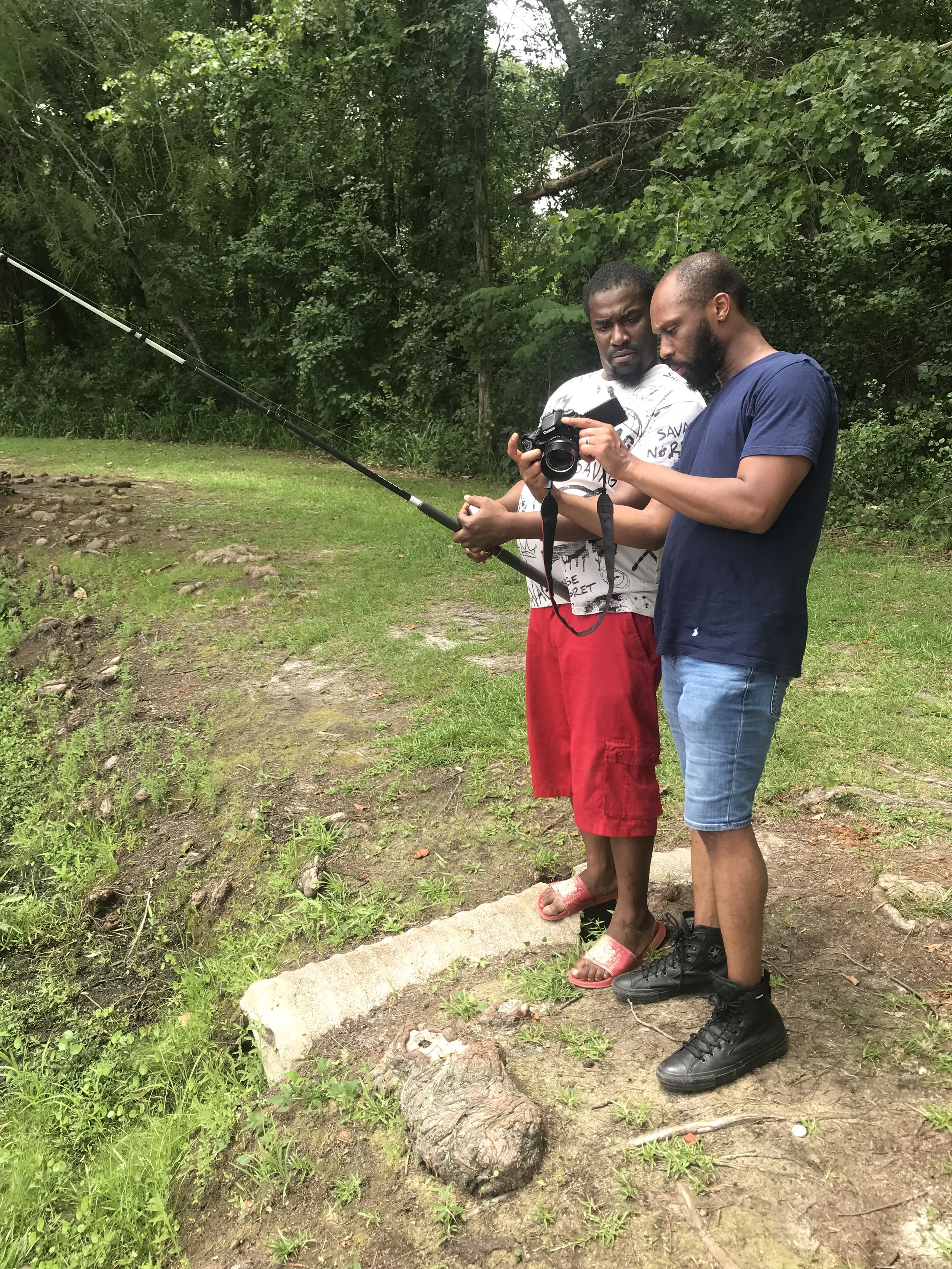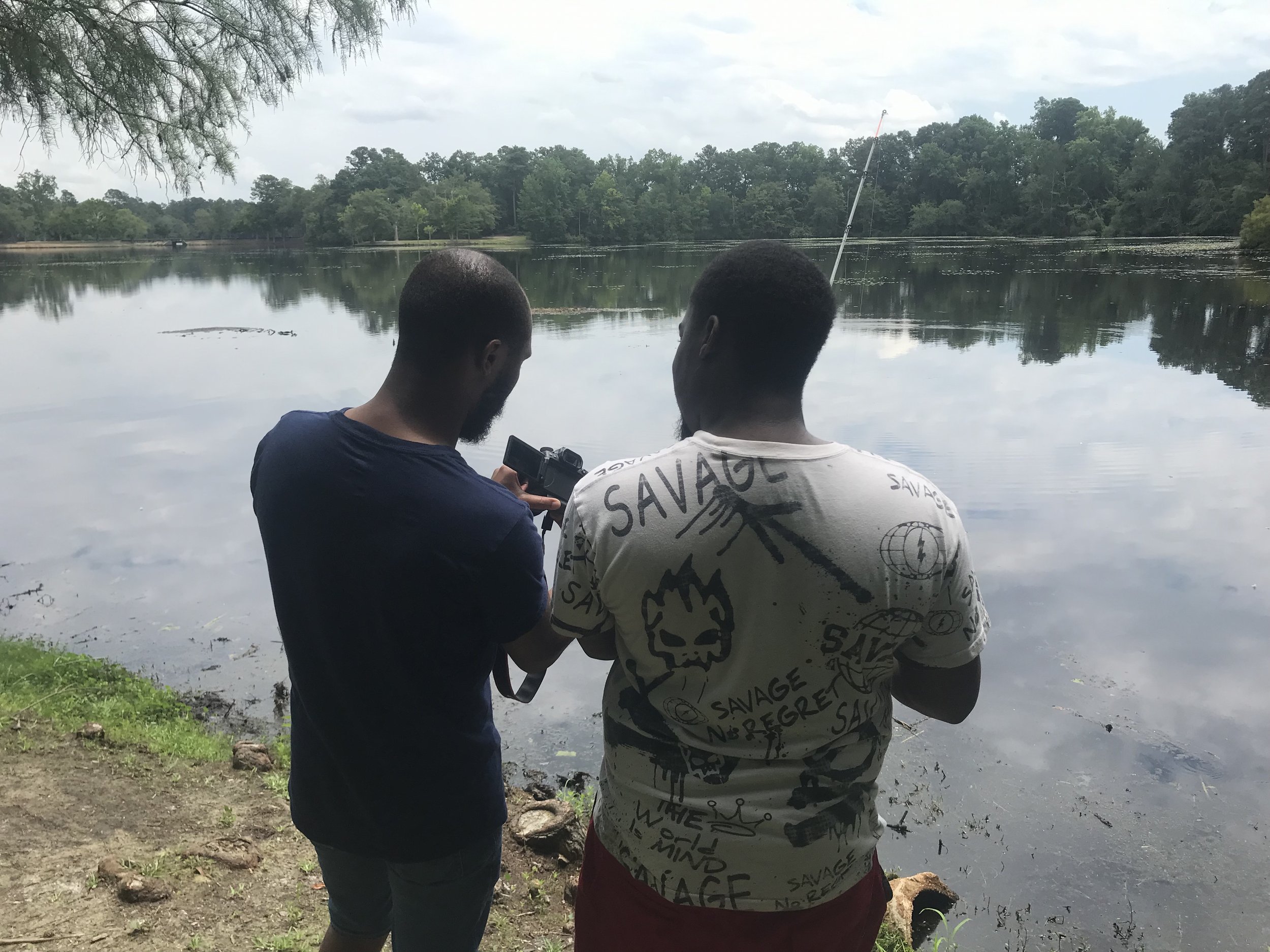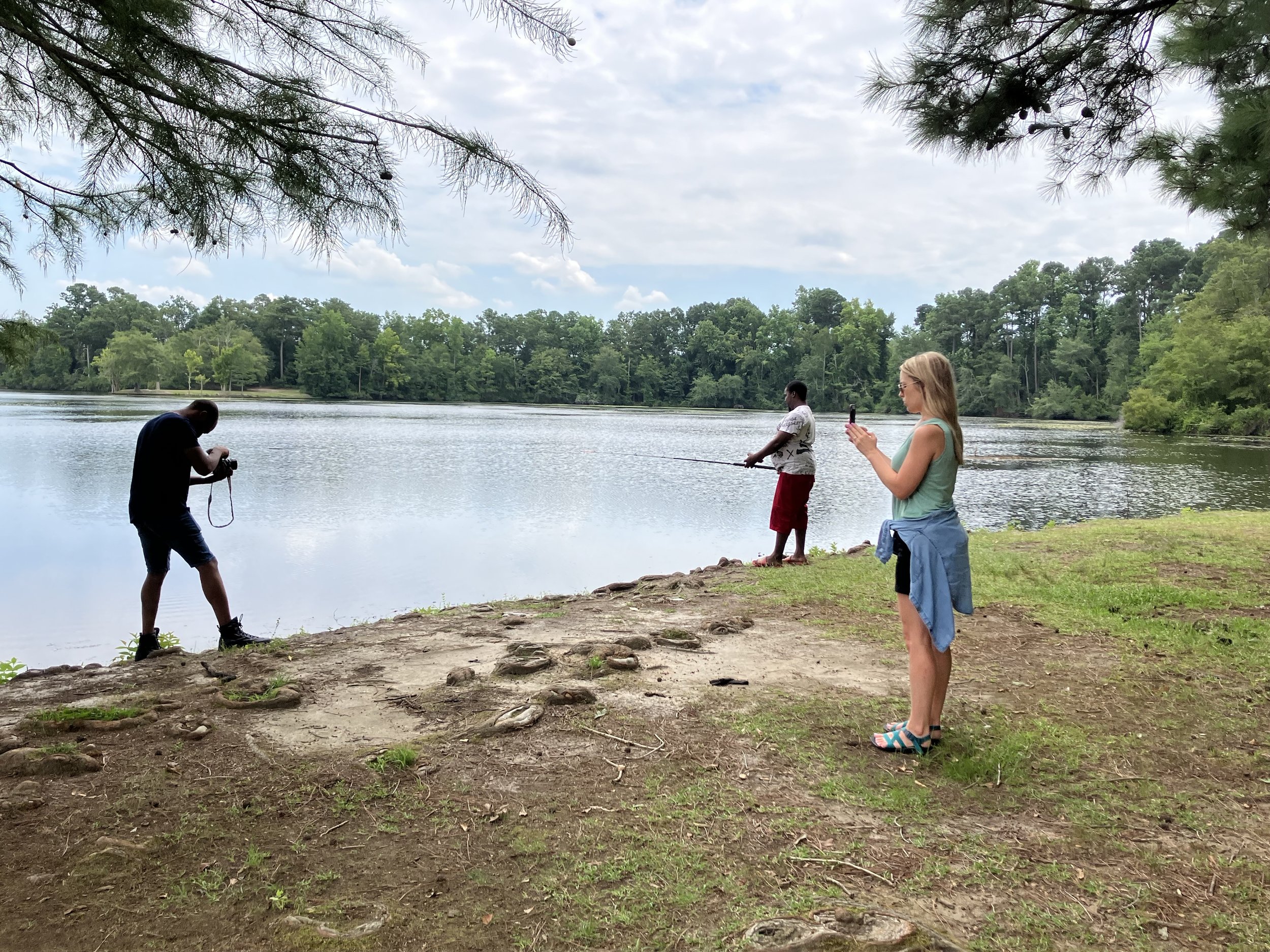r to the power of 3:
Revisioning rural reentry
R3 is a statewide, community-based collaboration using ethnography, curated story sharing, an interactive exhibit featuring portraiture and reflections, community gatherings, and restorative conversations to revision rural reentry. The intent of R3 is to foster the connection and caring required for authentic change by listening to diverse stakeholders reflect on the unique challenges of rural reentry; by building civic engagement, capacity, and commitment through shifting the dominant narrative around incarceration and reentry; and by sharing community-devised organizing tools with rural communities statewide.
THE STORY
In 2022, we were invited to initiate community-visioning for a project focused on reentry in Scotland County. Like many rural counties, the statistics are stark: a poverty rate of more than 27%; severe housing problems; nearly half the children live in poverty. The highest rates of prison admissions in North Carolina are in rural counties, yet rural reentry is often overlooked in the broader discourse. Additionally, when we consider reentry, we often focus only on returnees. But the effects of incarceration involve entire communities, and nowhere is this truer than in rural areas.
As we listened to stakeholders in this southern county, we began to see that the only real strategy for addressing the challenges of rural reentry is to build a more inclusive understanding and expansive collaboration, one that spans perceived local divisions as well as rural geographies across the state.
How do we build this more inclusive understanding? Stories offer a kind of proximity, providing pathways that can transform old prejudices and un-inspected biases and open the possibility for connection, caring, and transformation. R to the Power of 3 is grounded in the practice of deep listening to all the stakeholders around reentry: those returning, their families, faith communities, neighbors, service providers, educators, mental health professionals, parole and probation officers, elected officials, police, peer support specialists, and others. Their voices, experiences, and perspectives create a nuanced vision of what is possible for their community and our state.
Rural reentry may lack resources but rural communities do not lack resourceful people. If you have a story to share or would like to suggest a connection, we’d love to hear! We’re excited to see where these stories will take us.
performance
STORY CYCLES
We’re excited to see what we learn from listening to these stakeholder voices: those returning, their families, faith communities, neighbors, service providers, educators, mental health professionals, parole and probation officers, elected officials, police, peer support specialists, and more. If you know someone with a story or perspective to share, please let us know!
Learn more: Stories offer a kind of proximity, creating pathways for connection, caring, and transformation. These early stories share perspectives that may surprise you.
EXHIBIT
Portraits and Reflections from directly-impacted stakeholders across rural North Carolina.
Learn more: We’ll be inviting stakeholders to choose a place they love as the setting for their portrait and to reflect on the prompt “What brings you joy?” It’s a great question for any of us to consider, any time.
toolkit
When the project nears completion, we plan to develop a toolkit with background and current context relating to incarceration and reentry in North Carolina; a story cycle sharing perspectives from stakeholders in these counties (returnees, family members, service providers, educators, probation and parole officers, elected officials, reentry council members, peer support specialists); selected portraits and reflections from directly-impacted stakeholders; a conversation guide to enable diverse groups to engage with the context, stories, and reflections.
The guide will offer support for informal settings and for use in conjunction with restorative or transformative justice facilitators.
